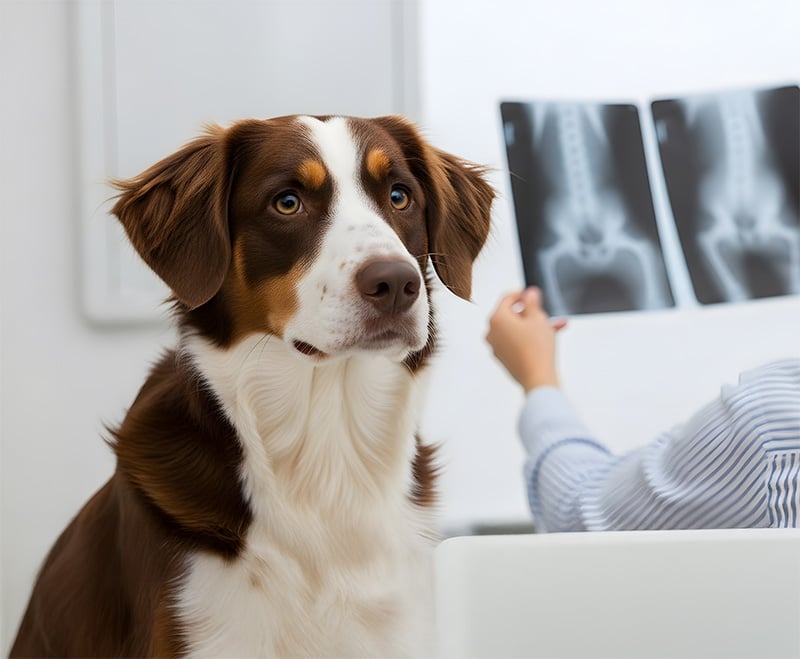
Why Do Animals Need Radiography?
Radiographs allow our veterinarians to look inside your pet’s body without surgery. They help us identify concerns early and provide the best possible treatment plan. Pets may need radiographs for a variety of reasons, including:
- Detecting injuries or fractures: Radiographs help us evaluate your pet’s bones and joints after an injury or trauma.
- Identifying internal issues: They allow us to examine organs such as the heart, lungs, liver, and kidneys to check for potential problems.
- Checking for dental problems: Radiographs reveal tooth decay, abscesses, or other oral concerns that cannot be seen during a physical exam.
- Monitoring chronic conditions: They support ongoing care by helping us track changes related to conditions like arthritis or heart disease.
Benefits of Radiography
Radiographs offer many advantages for both pets and their owners:
- Non-invasive and painless – No surgery or recovery required.
- Fast and accurate results – Images are available almost instantly, helping us act quickly if needed.
- Guides treatment decisions – Ensures our veterinarians have the clearest information possible to create a personalized care plan.
Reach Out Today:
.jpg?width=1050&height=800&name=kitten%20crop%203%20(1).jpg)
What to Expect
When you bring your pet to Vine Veterinary Hospital for a radiograph, we make the process as stress-free as possible. Our friendly team will greet you, explain each step, and answer any questions you have before beginning.
Depending on your pet’s needs, radiographs may take anywhere from 15 to 45 minutes. In some cases, sedation may be recommended to keep your pet comfortable and still, especially if we need highly detailed images. Once the images are taken, our veterinarians will carefully review the results and discuss the findings with you the same day whenever possible.
.jpg?width=1158&height=866&name=vine-vet-dog-vax-LP-The%20Importance%20of%20Consistent%20Vaccine%20Schedules%20(1).jpg)
How to Prepare Your Pet for a Radiograph
Our team will provide specific preparation instructions based on your pet’s needs, but here are a few general tips:
- Follow any fasting instructions if sedation may be required.
- Keep your pet calm before the appointment. Familiar toys or blankets can help keep your pet at ease.
- If this is your first visit, bring medical records or details about your pet’s history.
If you have any questions or need help preparing your pet, contact us! We are happy to guide you through the process.
